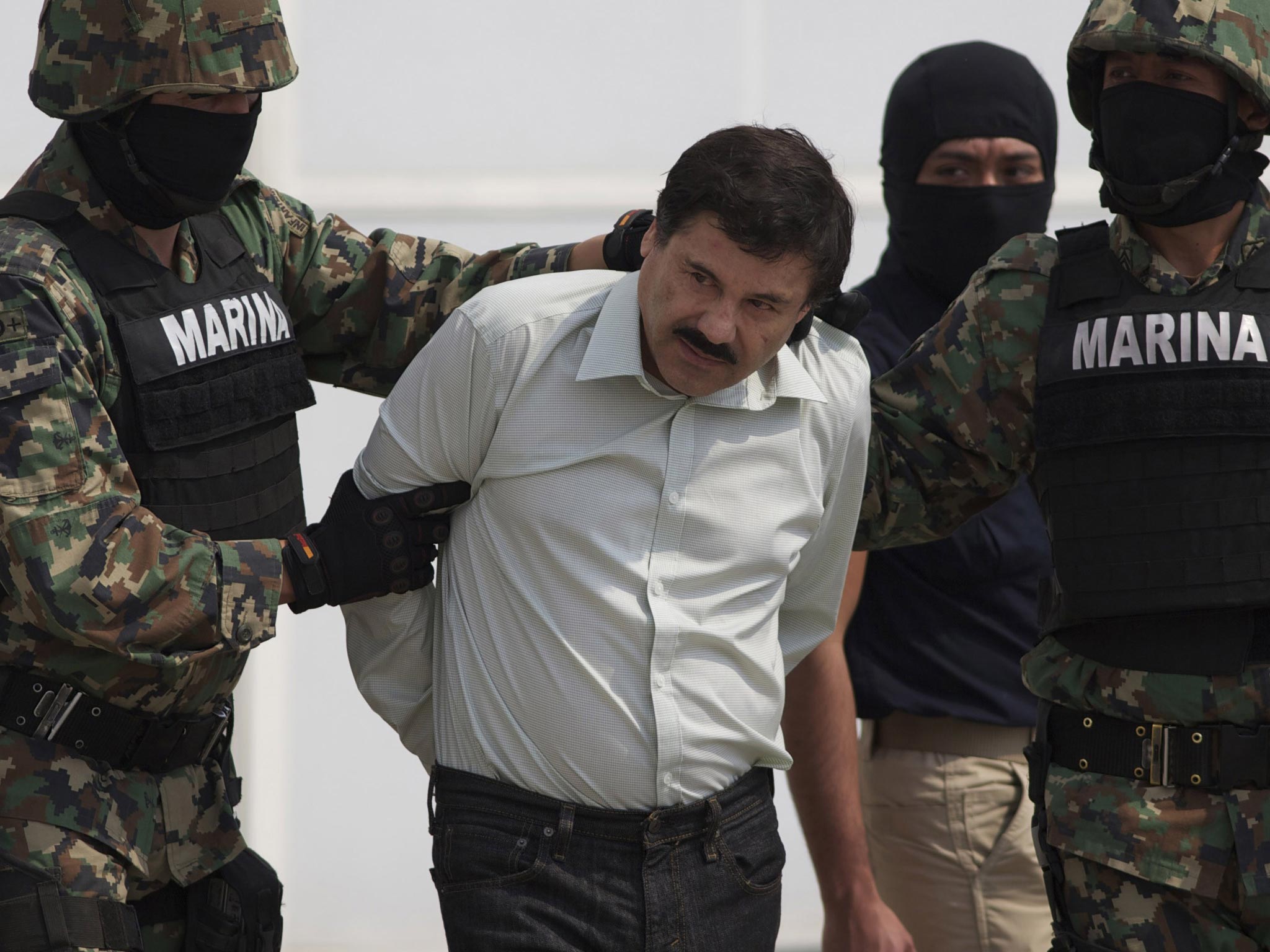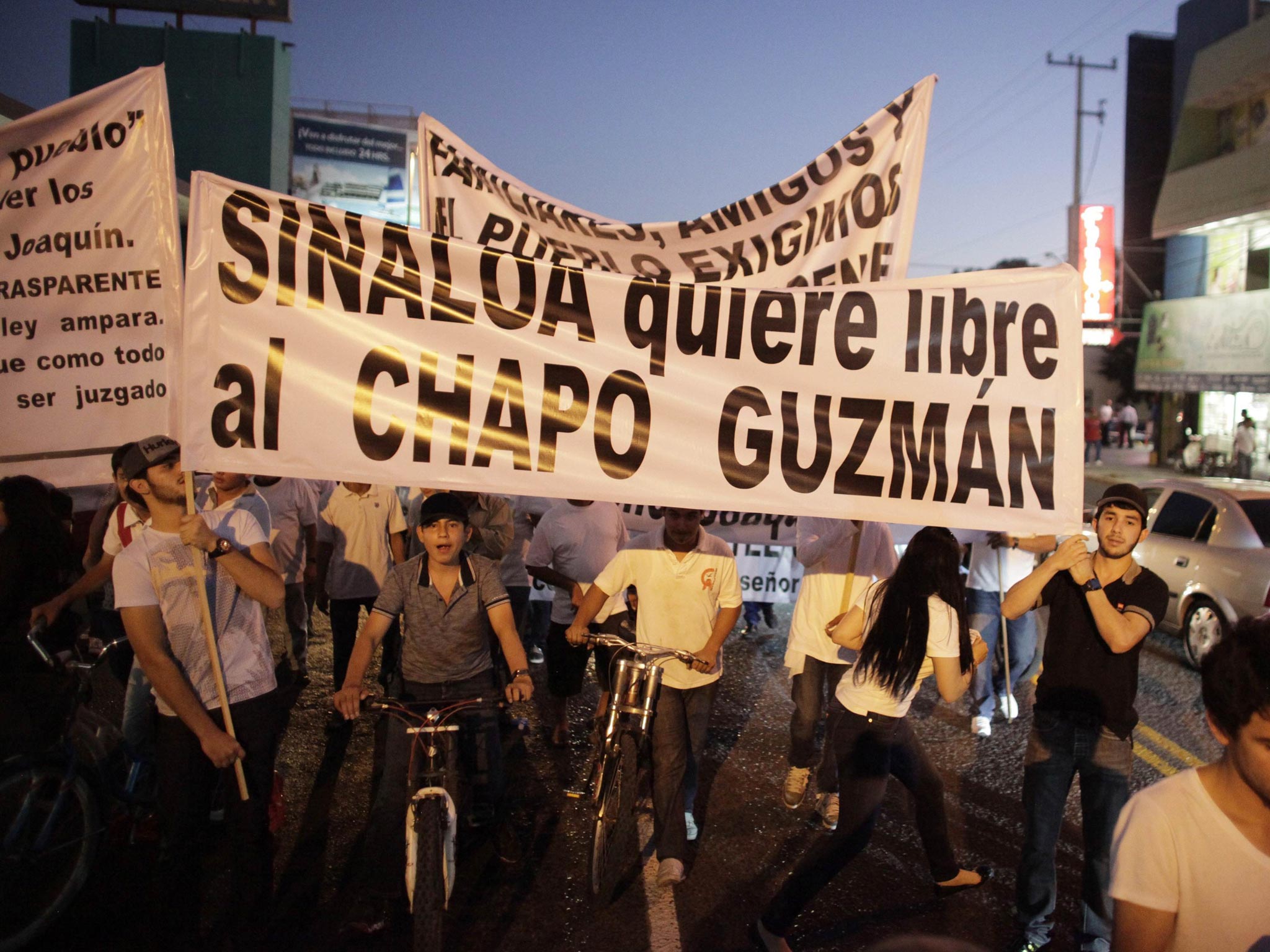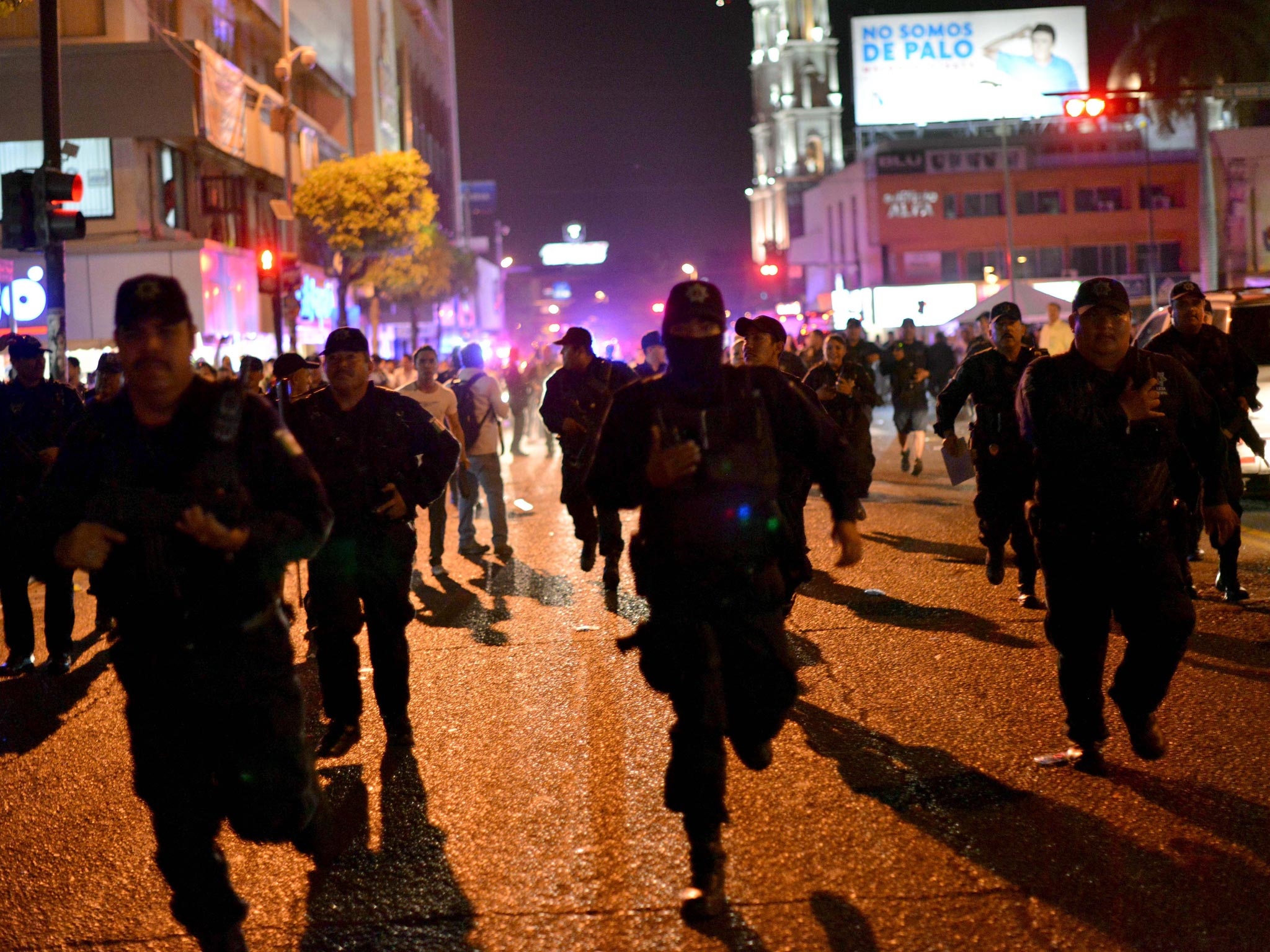‘We want Shorty freed’: Why Mexico’s most feared drug lord is still a hero back home
Michael O'Boyle reports from Culiacan on the disputed legacy of Joaquin Guzman

Your support helps us to tell the story
From reproductive rights to climate change to Big Tech, The Independent is on the ground when the story is developing. Whether it's investigating the financials of Elon Musk's pro-Trump PAC or producing our latest documentary, 'The A Word', which shines a light on the American women fighting for reproductive rights, we know how important it is to parse out the facts from the messaging.
At such a critical moment in US history, we need reporters on the ground. Your donation allows us to keep sending journalists to speak to both sides of the story.
The Independent is trusted by Americans across the entire political spectrum. And unlike many other quality news outlets, we choose not to lock Americans out of our reporting and analysis with paywalls. We believe quality journalism should be available to everyone, paid for by those who can afford it.
Your support makes all the difference.More than a thousand people marched through the streets of the capital of notorious captured Mexican drug lord Joaquin “Shorty” Guzman’s home state, calling for his freedom.
The largely young crowd, many dressed in white, bore signs that read “We want Shorty freed” and “We demand no extradition” as they filed across the centre of Culiacan, in the north-western state of Sinaloa, to a church on a palm tree-lined plaza.
Boys donned white T-shirts scrawled with messages written in marker pen in support for “El Chapo,” his nickname in Spanish. Teenage girls in school uniform chanted “Chapo, Chapo.”
The show of support for one of the most powerful drug lords in Mexico is a sign of how nefarious groups have sought to fill the gap left by the state in areas where cartels rule.
“The government doesn’t give any job opportunities,” said Daniel Garcia, an unemployed 20-year-old. “The situation is, honestly, really difficult and he helps out the young people, giving them jobs.”
Guzman, who rose from humble origins to become one of the most powerful drug barons in history, was captured on Saturday in a raid in the beachside resort and fishing centre of Mazatlan, 125 miles south-east of Culiacan.
President Enrique Pena Nieto said there would be no swift extradition to the United States for Guzman, citing the fact that he still faces an outstanding prison term after staging a prison break in 2001, reportedly in a laundry cart.

Guzman and his Sinaloa cartel are suspected of shipping billions of dollars worth of cocaine, methamphetamine, heroin and marijuana north across the border into the United States.
Some in the crowd credited Guzman and his gang for keeping the city free of the extortions and kidnappings that plague other parts of Mexico, where rival gangs reign. One printed sign said: “We respect El Chapo more than any elected official.”
Although security officials blamed the Sinaloa cartel for thousands of killings in the gang violence that has rocked Mexico over the past decade, Guzman’s outfit were seen by many as less of a threat to the public than their bloodiest rivals.
The march took on a festive mood as the demonstrators walked to the city’s central Cathedral. Brass bands played songs known to be favourites of Guzman, Mexico’s most wanted man and Chicago’s first public enemy No 1 since Al Capone. One woman carried a banner that read “Chapo, give me a child.”
It was unclear exactly who had organized the march. At the start, young men handed out the white T-shirts and professionally printed banners.

Other youths in pick-up trucks, their faces masked by bandanas, handed out water and cornmeal tamales once the crowd reached the end of their march route.
Flyers advertising the march had been distributed in the city earlier in the day and many residents thought it was a joke. Political marches are common in Mexico, but not demonstrations in favour of wanted drug kingpins.
“This is amazing,” said Rosa, 40, a lab analyst who declined to give her last name, as she watched from the side of the street amid the crowds of shoppers and people going to work. “It is true what they say, there is no violence and no extortion.”
But the festive scene began to sour after police began entering the crowd. Officers were surrounded by jeering demonstrators ?and many marchers ran away as police responded by using pepper spray.
Reuters
Join our commenting forum
Join thought-provoking conversations, follow other Independent readers and see their replies
Comments